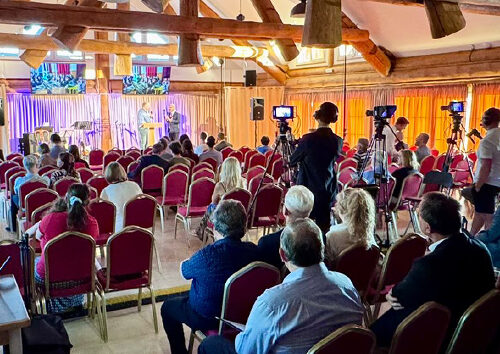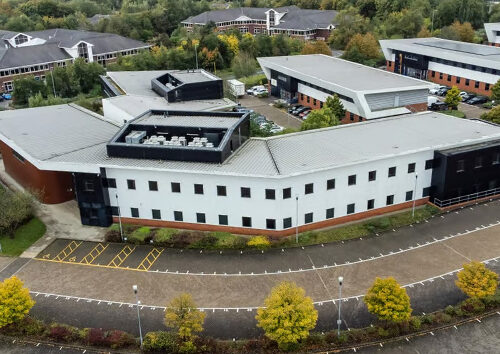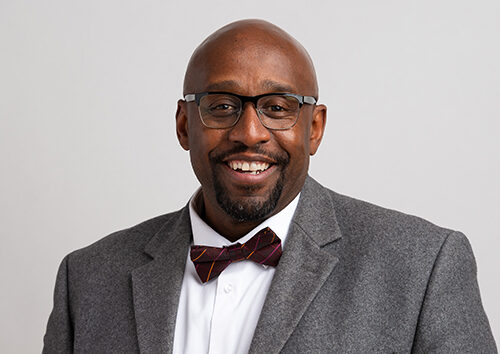6 January 2020 | Budapest, Hungary [Daniel Heinz]
László Michnay, a courageous and brave Christian leader, helped more than 50 Jews escape the Holocaust.
Outside Jerusalem, near Yad Vashem, the memorial centre of the Six Million, a quiet garden is planted with trees in memory of righteous non-Jews during Nazi persecution in World War II. Each tree bears a plaque telling about the “Righteous Gentile” in whose honour the tree was planted. One tree was planted in memory of a Hungarian Adventist pastor, László Michnay (1893–1965), a courageous and brave Christian leader who helped more than 50 Jews escape the Holocaust.
“There were so few that had the courage for this,” recalls Magda Berzenczey, Michnay’s daughter, referring to Adventists who helped Jews during the Nazi period. “Yes, there were some, but there should have been more, many more.”
She continued by telling me the story of her father, who made his mark in history as the “Adventist Wallenberg.” The Swedish diplomat, Raoul Wallenberg, whose fate is still unclear to this day, is known to have protected thousands of Jews from the Holocaust in Hungary. Michnay and Wallenberg knew each other personally and undertook the same mission: to save people from the cruelty of the Nazis.
FEARLESS IN THE FACE OF BIGOTRY
Until March 1944 Jews in Hungary felt relatively safe in the face of German occupation, although they met with increasing discrimination through the race laws of 1941, comparable to the Nuremberg Laws. The Jewish journalist Vilmos Mezöfi, who was later saved by Michnay, recalls that in 1943 the fearless Adventist pastor gave a public lecture on the “Jewish Question” in the largest Adventist chapel in Budapest.
Among the hundreds of listeners in the audience were plainclothes police officers. “My dear Christian sisters and brothers,” declared Michnay from the pulpit, “you can only be faithful and honest followers of Christ if you take Jews, our next-of-kin, into your protection.” The pastor was aware of the growing anti-Semitic feelings that had spread among Adventist members. Jews, at that time, comprised 16 percent of Budapest’s population. Adventist congregations in Hungary had accepted a number of Jewish converts in the past.
A police summons after the memorable lecture did not intimidate Michnay. In October 1944, when Hitler’s fascist-backed Arrow Cross Party, under its fanatical leader Ferenc Szálasi, overthrew the Horthy regime and organised the transport of thousands of Hungarian Jews to Nazi death camps, Michnay decided to build up a clandestine network for the rescue of Jews. His faithful wife, Jolán, a “mother in Israel,” supported him wholeheartedly.
Central to his rescue operation was the Adventist church building on Székely Bertalan Street, near the Jewish ghetto. In a range of small rooms, corridors, and corners of this building—in cellars, attics, under the stairways, and behind the stage—the fearless pastor kept in hiding a number of Jews, code-named “U-boats.” He made no distinction between Adventists of Jewish descent or Jews. Michnay tried to help everyone who asked.
Although secretly watched by the Gestapo, Michnay was fortunate that only local Hungarian police officers knocked at the door of the church building. German police would have been more thorough in their searches. Each time an unwelcome visitor appeared at the door, Michnay spoke in a loud voice, engaging the visitor in conversation, thus warning the persecuted ones in the house and giving them time to find their hiding places. Michnay’s early connection with Szálasi may have proved to be helpful, as the Hungarian police officers always left without carefully searching the chapel, despite their suspicions.
THE CIRCLE WIDENS
Michnay and Szálasi, though animated by very different passions, had been schoolmates, and a bond between them remained from their earliest youth. Long before Szálasi’s career as a Nazi leader, Michnay, always ready to help, contributed small amounts of money to keep his unemployed school friend from criminal activities. These amounts were withdrawn from the monthly salary payments to his daughter, Magda, who worked as a secretary in the Adventist mission office.
When Michnay could not hide any more Jews in the Adventist chapel—approximately 30 “U-boats”—he arranged new hiding places outside Budapest. The Vámosi family was one such case. First, he took the family to Istvan Oláh, an Adventist pastor living in a Budapest suburb. Oláh worked closely with Michnay and hid Jews in his apartment. A few days later the family found safe hiding until the end of the war in the remote home of an Adventist farmer, Imre Török, in Vác, Sejce, north of Budapest.
Michnay took Arpád Roóz, who later became treasurer of the Hungarian Adventist Union, to the home of the dentist Zsigmond Csiki in Miskolc, a city 180 kilometers (112 miles) northeast of Budapest, where Roóz survived the Nazi terror unharmed.
Michnay’s daughter, Magda, born in 1925, stayed behind, hiding in the Adventist chapel in Budapest. As a surviving witness, she has been able to describe the strenuous under- ground life in the church building: the daily fear of discovery; survival in the smallest of spaces; the trauma of not being able to move for many hours; constant thirst and hunger; nagging self-reproach and concern about the helpers who risked their lives; and the frightening question as to how long this underground existence would last.
Michnay displayed not only boldness and organisational skills, but also creativity in his rescue actions. In the autumn of 1944, he asked Károly Berzenczey, his daughter Magda’s fiancé, to disguise himself as a craftsman to smuggle the young Jewish girl, Jutka Holczer, out of the ghetto. Magda chatted up the soldiers, while Károly, with the small girl in his rucksack, slipped out of the ghetto. The dangerous plan succeeded.
COURAGE IN CRISIS
Michnay’s rescue work was successful only because he had the full backing and support of his wife and children and the help of some brave Adventist church members.
They held up a mirror to the many silent bystanders and fearful observers within the church and beyond, consistently following the example of Jesus. Their courageous witness can help us not to repeat the mistakes of the past and forget the unparalleled human tragedy of the Holocaust.
There should have been more helpers such as László Michnay.
The original article first appeared in the Adventist World magazine.
tedNEWS Staff: Victor Hulbert, editor; Deana Stojković, associate editor
119 St Peter’s Street, St Albans, Herts, AL1 3EY, England
E-mail: [email protected]
Website: www.ted.adventist.org
tedNEWS is an information bulletin issued by the communication department of the Seventh-day Adventist Church in the Trans-European Division. Readers are free to republish or share this article with appropriate credit including an active hyperlink to the original article.



